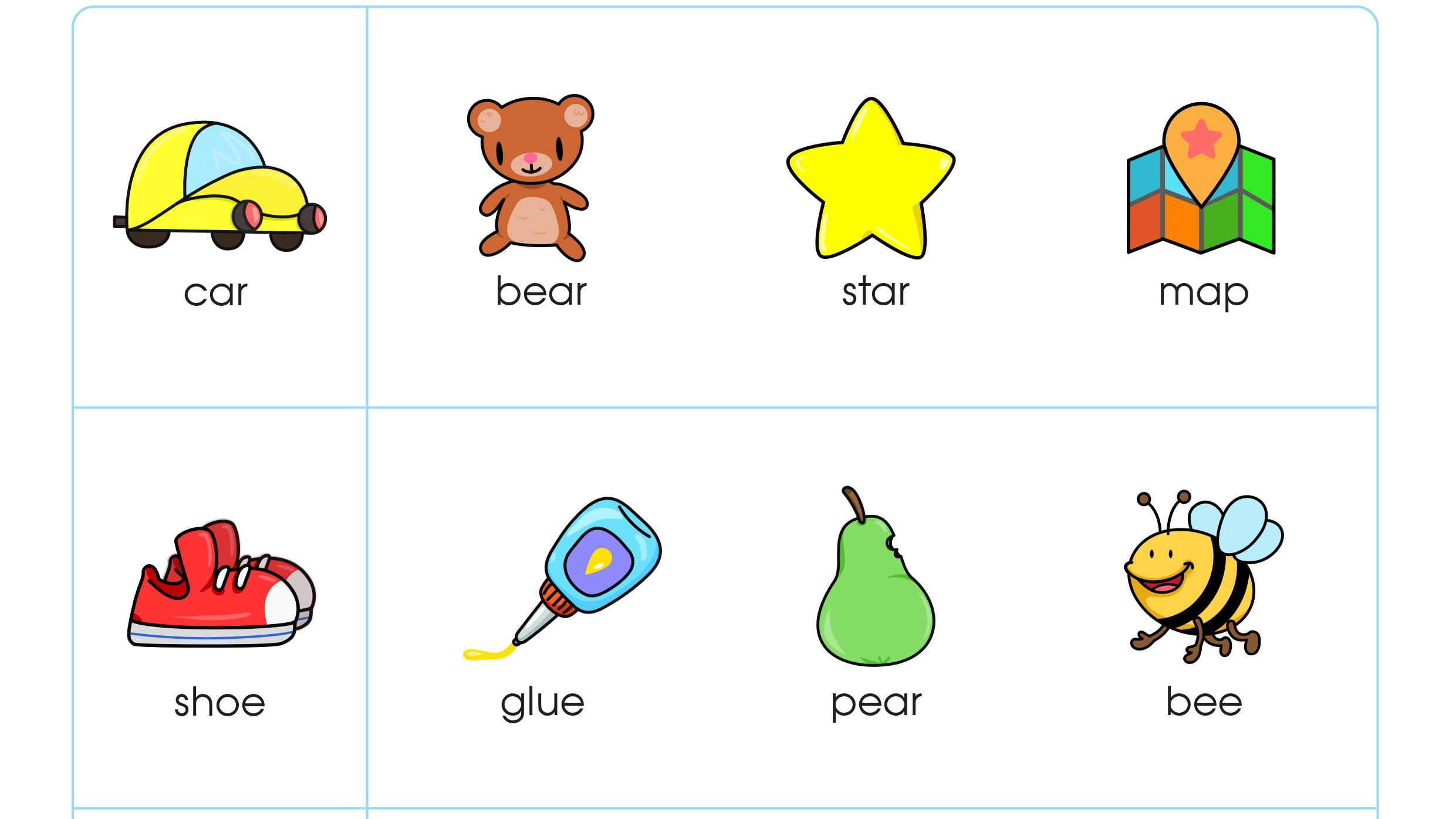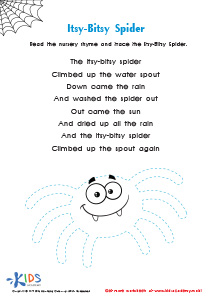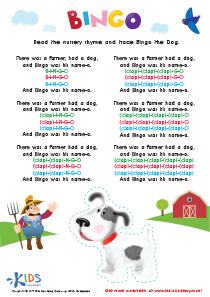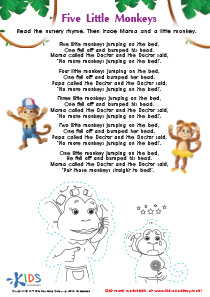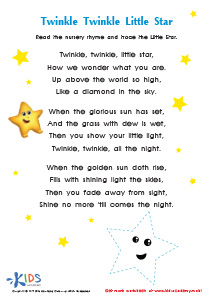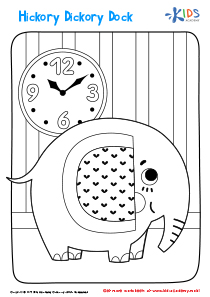Easy Nursery Rhymes Worksheets for Ages 4-7
5 filtered results
-
From - To
Welcome to our Easy Nursery Rhymes Worksheets for Ages 4-7! Designed to engage young learners, our worksheets enhance literacy skills while making learning fun. Featuring popular nursery rhymes, these resources encourage creativity and expression through coloring, tracing, and comprehension activities. Perfect for home or classroom use, our worksheets promote language development and rhythm recognition, allowing children to explore the joy of poems and songs. The interactive and colorful activities invite kids to dive into the magical world of nursery rhymes, fostering a love for reading early on. Start enhancing your child's language skills today with our delightful worksheets!
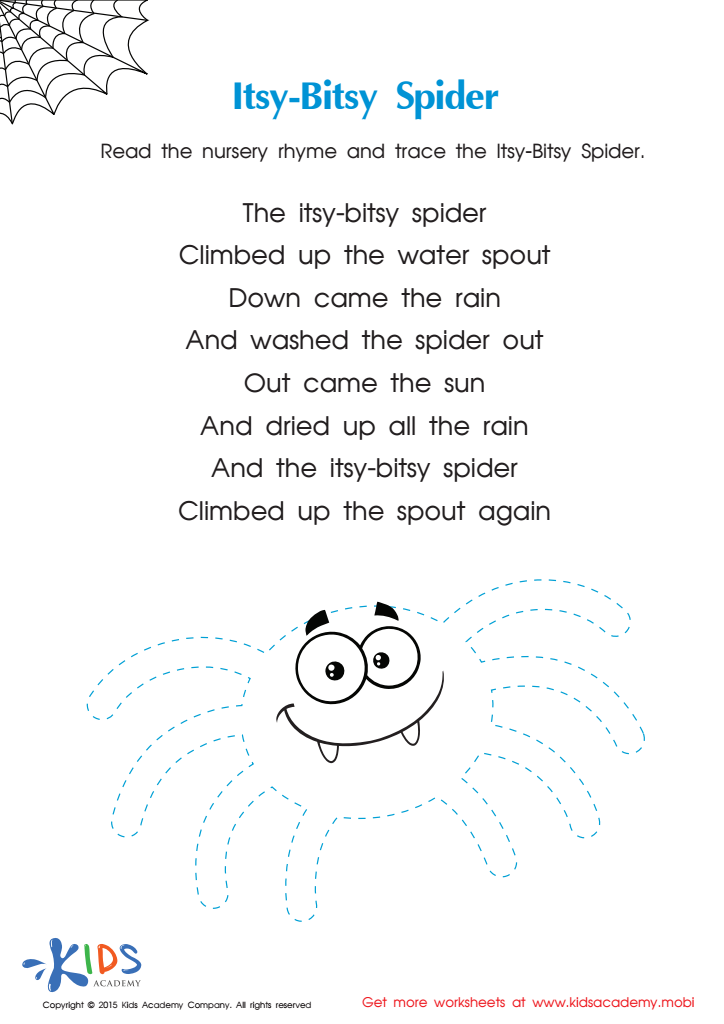

Itsy Bitsy Spider Nursery Rhyme PDF Worksheet


The Five Little Monkeys Nursery Rhyme Worksheet
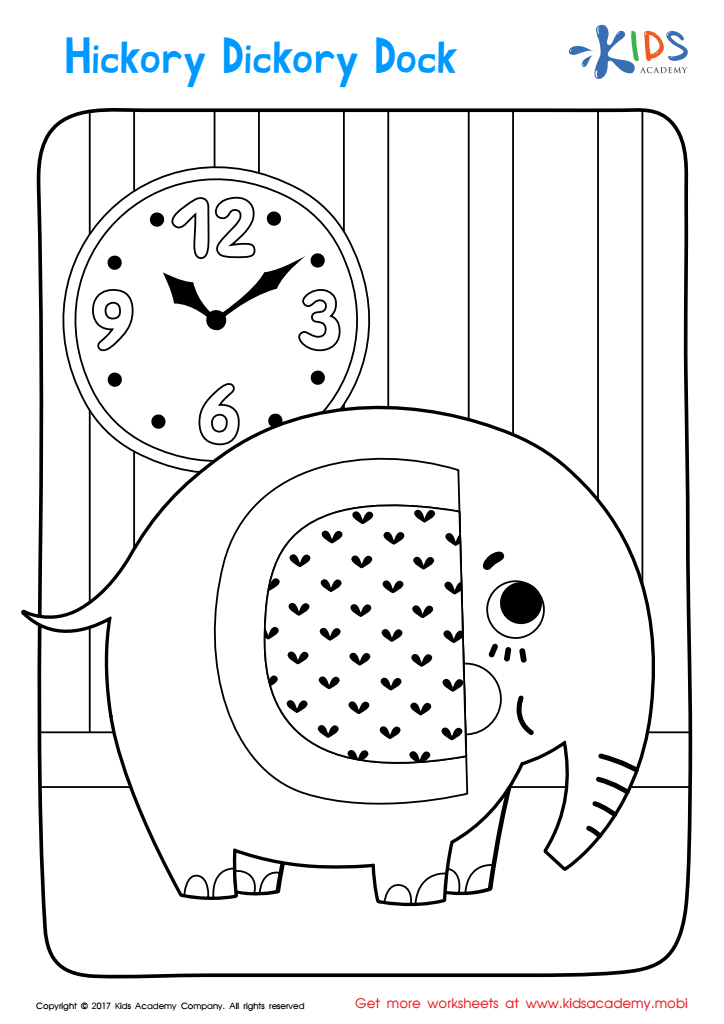

Hickory Dickory Dock Coloring Page
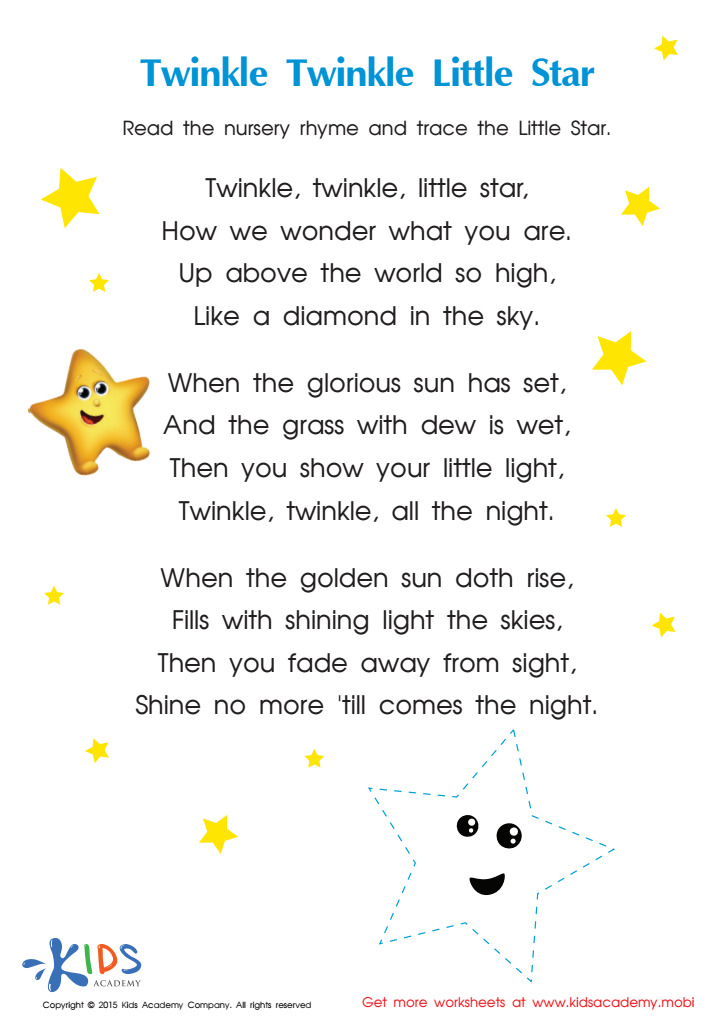

Nursery Rhymes: Twinkle Little Star Worksheet
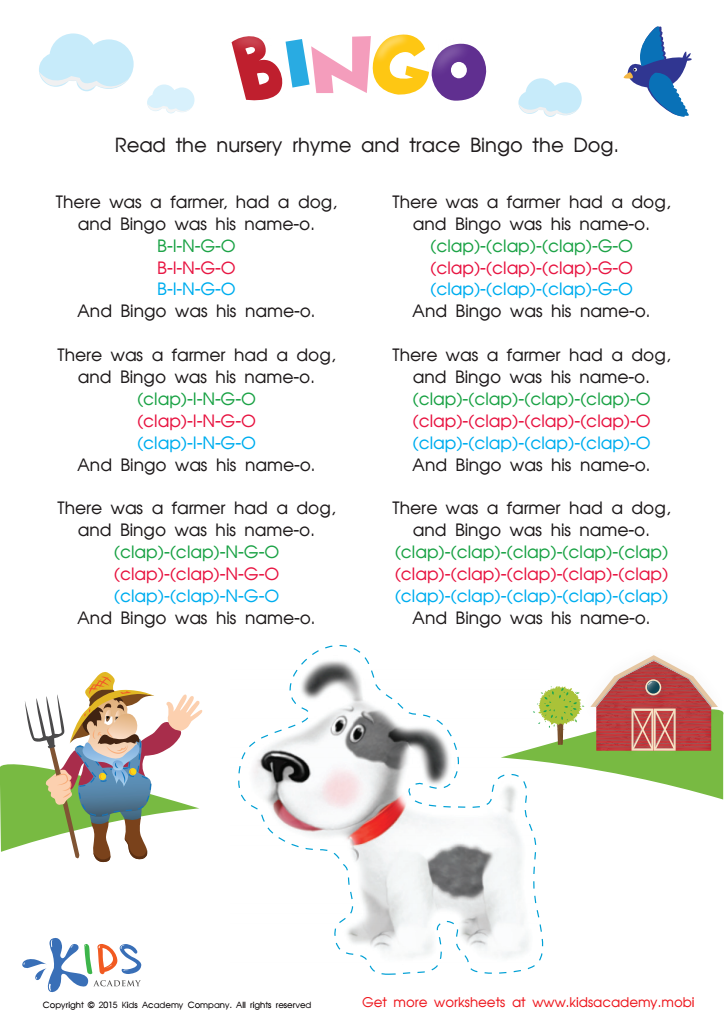

Nursery Rhymes: The Bingo Song Worksheet
Easy nursery rhymes are essential for children aged 4-7 as they serve as an engaging tool for early language development. These short, catchy verses introduce young learners to the rhythms and patterns of language, enhancing their phonemic awareness—the foundation for reading skills. Hearing and reciting nursery rhymes help children recognize sounds and syllables, making it easier to decode words when they begin to read.
Moreover, nursery rhymes foster memory and recall abilities. The repetitive nature of these rhymes aids in boosting cognitive development, allowing children to practice memorization in a fun manner. Additionally, they encourage creativity and imagination, as children often visualize the stories being told.
Socially, nursery rhymes can serve as a shared activity for parents and teachers to bond with children, promoting emotional connections. Singing or reciting together cultivates an enriching environment that supports emotional intelligence and verbal communication skills.
Furthermore, familiarizing children with cultural references through nursery rhymes enhances their understanding of societal values. In short, easy nursery rhymes are not merely pastimes; they are powerful educational tools that contribute to linguistic, cognitive, social, and emotional growth in young children, making them invaluable for parents and teachers alike.
 Assign to My Students
Assign to My Students




.jpg)

